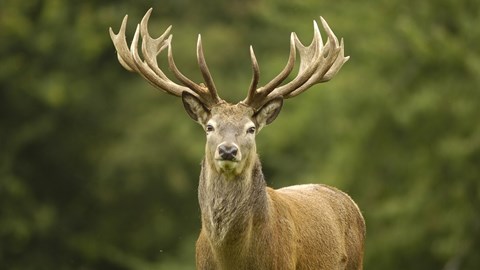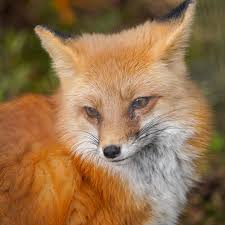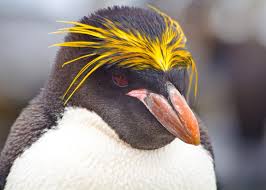Booklet: Christmas 2021 : Let's Celebrate (France 2021)
Christmas 2021 : Let's Celebrate (France 2021)
02 November (France ) within release Christmas 2021 : Let's Celebrate goes into circulation Booklet Christmas 2021 : Let's Celebrate face value 12*Lettre No Face Value
| Booklet Christmas 2021 : Let's Celebrate in catalogues | |
|---|---|
| Colnect codes: | Col: FR 2021-62 |
Booklet is horizontal format.
Face value € 1.08 per stamp on day of issue.Also in the issue Christmas 2021 : Let's Celebrate:
- Stamp - Animals in Forest face value Lettre;
- Stamp - Animals in Forest at Night face value Lettre;
- Stamp - Bear face value Lettre;
- Booklet - Christmas 2021 : Let's Celebrate face value 12*Lettre;
- Stamp - Deer in Winter Forest face value Lettre;
- Stamp - Forest and Leaves face value Lettre;
- Stamp - Fox in Winter Forest face value Lettre;
- Stamp - Gifts face value Lettre;
- Stamp - Penguin in Winter Forest face value Lettre;
- Stamp - Reindeer in Winter Forest face value Lettre;
- Stamp - Snowflakes face value Lettre;
- Stamp - Squirrels in Winter Forest face value Lettre;
- Stamp - Trees and Flower face value Lettre;
Booklet Christmas 2021 : Let's Celebrate it reflects the thematic directions:
Bears are carnivoran mammals of the family Ursidae (/ˈɜːrsɪdiː, -daɪ/). They are classified as caniforms, or doglike carnivorans. Although only eight species of bears are extant, they are widespread, appearing in a wide variety of habitats throughout most of the Northern Hemisphere and partially in the Southern Hemisphere. Bears are found on the continents of North America, South America, and Eurasia. Common characteristics of modern bears include large bodies with stocky legs, long snouts, small rounded ears, shaggy hair, plantigrade paws with five nonretractile claws, and short tails.
Christmas or Christmas Day (Old English: Crīstesmæsse, meaning "Christ's Mass") is an annual festival commemorating the birth of Jesus Christ, observed most commonly on December 25 as a religious and cultural celebration among billions of people around the world. A feast central to the Christian liturgical year, it is prepared for by the season of Advent or the Nativity Fast and initiates the season of Christmastide, which historically in the West lasts twelve days and culminates on Twelfth Night; in some traditions, Christmastide includes an Octave. The traditional Christmas narrative, the Nativity of Jesus, delineated in the New Testament says that Jesus was born in Bethlehem, in accordance with messianic prophecies; when Joseph and Mary arrived in the city, the inn had no room and so they were offered a stable where the Christ Child was soon born, with angels proclaiming this news to shepherds who then disseminated the message furthermore. Christmas Day is a public holiday in many of the world's nations, is celebrated religiously by the vast majority of Christians, as well as culturally by a number of non-Christian people, and is an integral part of the holiday season, while some Christian groups reject the celebration. In several countries, celebrating Christmas Eve on December 24 has the main focus rather than December 25, with gift-giving and sharing a traditional meal with the family.
A deer (pl.: deer) or true deer is a hoofed ruminant ungulate of the family Cervidae. It is divided into subfamilies Cervinae (which includes, among others, muntjac, elk (wapiti), red deer, and fallow deer) and Capreolinae (which includes, among others reindeer (caribou), white-tailed deer, roe deer, and moose). Male deer of almost all species (except the water deer), as well as female reindeer, grow and shed new antlers each year. These antlers are bony extensions of the skull and are often used for combat between males.
Forestry is the science and craft of creating, managing, planting, using, conserving and repairing forests and woodlands for associated resources for human and environmental benefits. Forestry is practiced in plantations and natural stands. The science of forestry has elements that belong to the biological, physical, social, political and managerial sciences. Forest management plays an essential role in the creation and modification of habitats and affects ecosystem services provisioning
Foxes are small-to-medium-sized omnivorous mammals belonging to several genera of the family Canidae. They have a flattened skull; upright, triangular ears; a pointed, slightly upturned snout; and a long, bushy tail ("brush").
Penguins are a group of aquatic flightless birds from the family Spheniscidae (/sfɪˈnɪsɪdiː, -daɪ/) of the order Sphenisciformes (/sfɪˈnɪsəfɔːrmiːz/). They live almost exclusively in the Southern Hemisphere: only one species, the Galápagos penguin, is found north of the Equator. Highly adapted for life in the ocean water, penguins have countershaded dark and white plumage and flippers for swimming. Most penguins feed on krill, fish, squid and other forms of sea life which they catch with their bills and swallow whole while swimming. A penguin has a spiny tongue and powerful jaws to grip slippery prey
A gift or a present is an item given to someone, without the expectation of payment or anything in return. An item is not a gift if that item is already owned by the one to whom it is given. Although gift-giving might involve an expectation of reciprocity, a gift is meant to be free. In many countries, the act of mutually exchanging money, goods, etc. may sustain social relationship and contribute to social cohesion. Economists have elaborated the economics of gift-giving into the notion of a gift economy. By extension, the term gift can refer to any item or act of service that makes the other happier or less sad, especially as a favour, including forgiveness and kindness. Gifts are often presented on occasions such as birthdays and holidays.
Squirrels are members of the family Sciuridae a family that includes small or medium-sized rodents. The squirrel family includes tree squirrels, ground squirrels (including chipmunks and prairie dogs, among others), and flying squirrels. Squirrels are indigenous to the Americas, Eurasia, and Africa, and were introduced by humans to Australia. The earliest known fossilized squirrels date from the Eocene epoch, and among other living rodent families, the squirrels are most closely related to the mountain beaver and dormice








